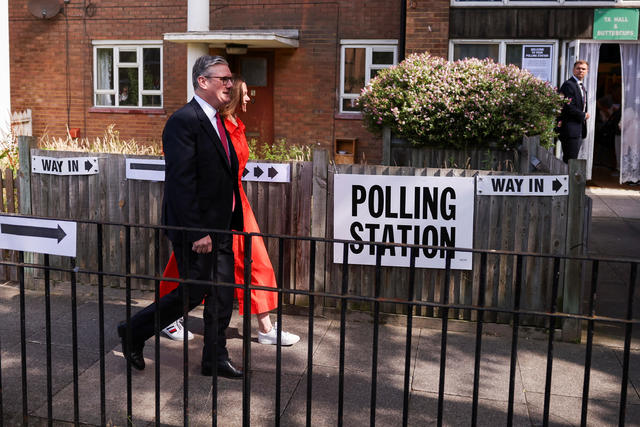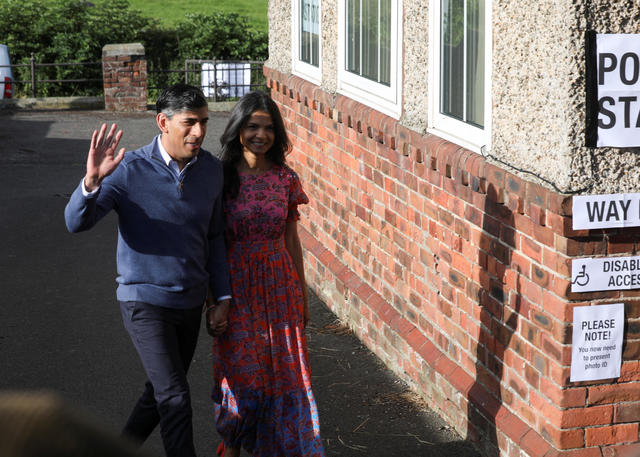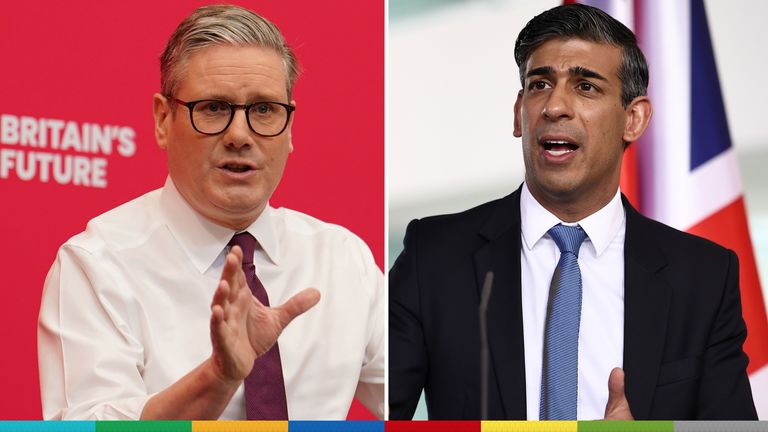In a momentous turn of events, the Labour Party has secured a landslide victory in the UK general election, ending 14 years of Conservative rule. Sir Keir Starmer, the Labour leader, announced, “Change begins now,” after surpassing the 326-seat threshold required for a majority in the House of Commons.
Outgoing Prime Minister Rishi Sunak conceded defeat moments before Labour reached the majority, acknowledging, “The Labour Party has won this general election, and I have called Sir Keir Starmer to congratulate him on his victory.” Sunak, looking solemn, admitted the Conservatives faced a “difficult night” and took full responsibility for the results.
Addressing a jubilant crowd of supporters, Starmer declared, “We did it, you campaigned for it, you fought for it, you voted for it and now it has arrived, change begins now.” He spoke of the UK basking once more in the “sunlight of hope,” expressing optimism for the nation’s future after years of Conservative governance.

With over 550 out of 650 seats declared, Labour is poised to form the next government with a substantial majority. Exit polls predict Labour will secure 410 seats, significantly surpassing their previous numbers and achieving a majority of 170 in the House of Commons. This result nearly mirrors the historic 179-seat majority won by Tony Blair in 1997.
The Conservative Party, once a dominant force, is projected to hold only 131 seats, its lowest number in history. This drastic reduction signifies a profound shift in the political landscape, as voters decisively turned away from the Tories.

Significant losses for the Conservatives included key cabinet ministers like Grant Shapps and Penny Mordaunt losing their seats to Labour, and other notable Tories, such as Alex Chalk and Gillian Keegan, falling to the Liberal Democrats’ aggressive campaign to “smash” the Tory Blue Wall. Additionally, senior Conservative backbencher Jacob Rees-Mogg lost his seat to Labour.
In a night of dramatic results:
- Former Labour leader Jeremy Corbyn retained his seat as an independent.
- Reform UK leader Nigel Farage won a Commons seat on his eighth attempt.
- Green Party co-leader Carla Denyer defeated shadow culture secretary Thangam Debbonaire in Bristol Central.
- Labour’s shadow paymaster general Jonathan Ashworth lost his seat to an independent.
The success of Reform UK saw Nigel Farage win in Clacton, with other Reform candidates such as former Tory Lee Anderson and Rupert Lowe also securing seats. The party’s impact pushed the Conservatives into third or even fourth place in several Labour constituencies.
Liberal Democrat leader Sir Ed Davey celebrated his party’s exceptional performance. Exit polls suggested the Lib Dems would win 61 seats, a dramatic increase from the 11 they secured in 2019. The Lib Dems achieved numerous gains from the Tories, including in Wells & Mendip Hills, Dorking & Horley, Wimbledon, Yeovil, Hampshire North East, and Norfolk North.
The Scottish National Party (SNP) faced a challenging night, with their representation predicted to dwindle to a maximum of 10 MPs, down from 48 in the last election. This decline allowed the Lib Dems to surpass the SNP as the third-largest party in the House of Commons.
This election marks a significant shift in the UK’s political landscape, with Labour poised to lead the country after over a decade of Conservative rule. The Conservatives now face a crucial period of introspection and potential reformation as they navigate their future in opposition.



